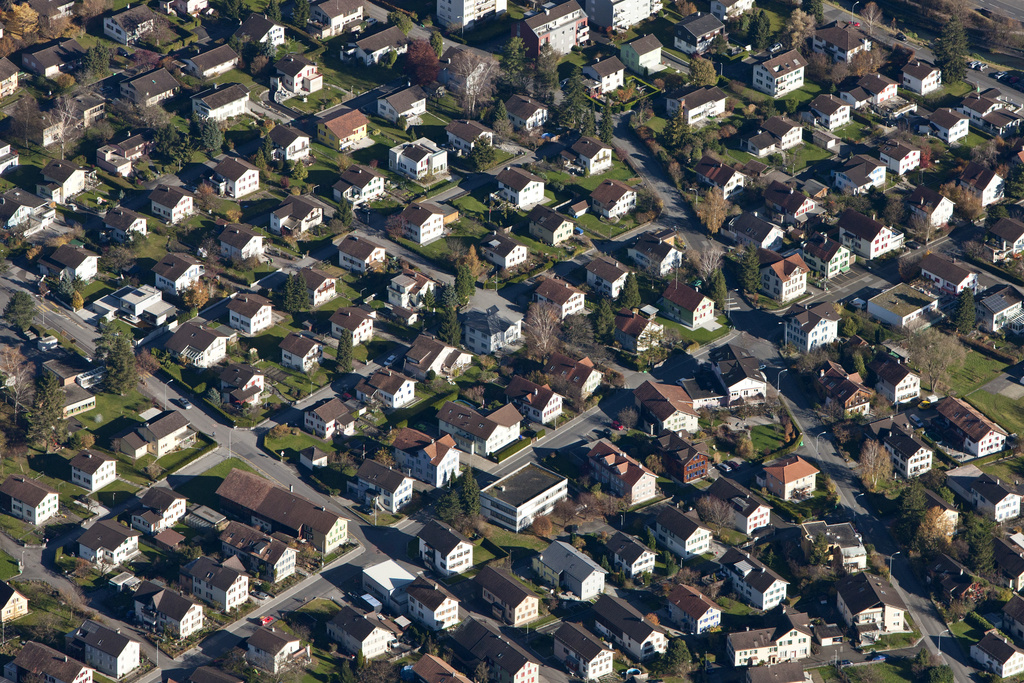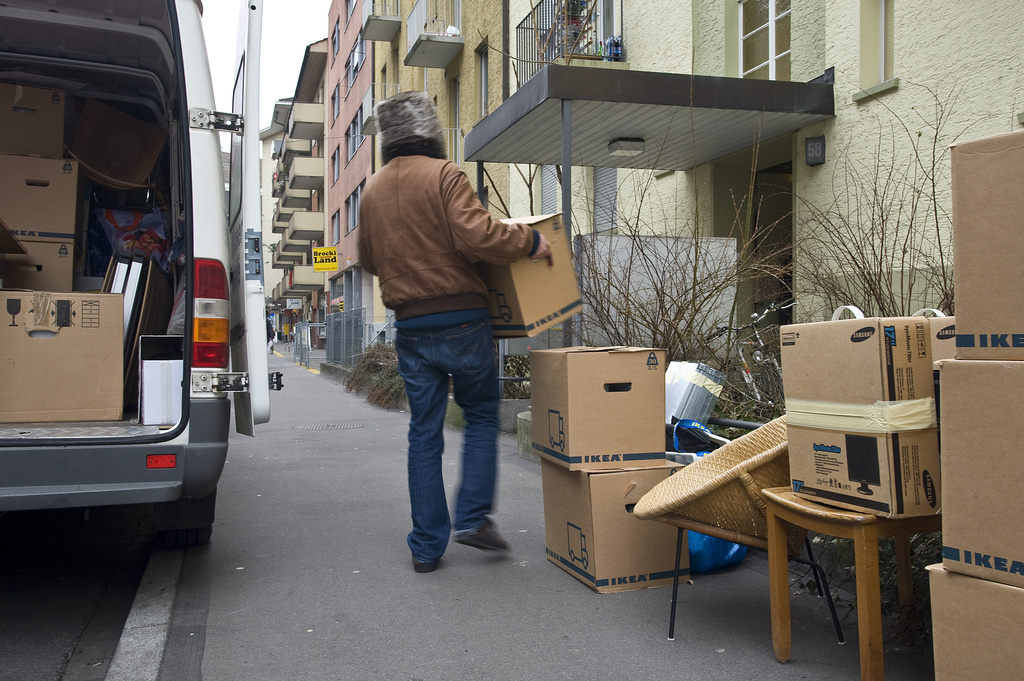Rising house prices “heading towards a wall”

Spiralling house prices in hotspot areas such as Geneva and Zurich threaten to become unsustainable unless action is taken, experts have warned.
The average price of apartments has increased 56 per cent in the past decade and that of single family homes by 37 per cent, with the trend showing no signs of abating.
In some areas, real estate inflation has substantially outstripped rises in household income.
“We’re heading towards a wall,” Credit Suisse real estate analyst Fredy Hasenmaile told swissinfo.ch. “There will be no impact this year, but that wall is only two to three years away.”
Rocketing house prices in major cities and tourist areas has been a cause for concern for some time in Switzerland. The Swiss National Bank (SNB) and the financial regulator issued dire warnings of the possible consequences for homeowners last year.
Prices in the hotspots of Geneva, Zurich, Zug and areas of Graubünden and Ticino have been driven by high levels of immigration, interest rates of virtually zero in the past year and a steady rise in household income.
The problem has been exacerbated in Geneva by local planning restrictions that benefit social housing schemes and rentable accommodation. But the strategy has backfired by reducing supply and forcing up rental prices as well as the cost of homes, according to Hasenmaile.
Blame game
The latest research from Credit Suisse revealed on Tuesday that real estate inflation in the Lake Geneva region has become more exaggerated than in the United States before the financial crash and in Switzerland just before the housing crash of the 1990s.
In Geneva house inflation is outstripping household income growth by 5.4 per cent a year, by 2.5 per cent in Lausanne and by 2.2 per cent in Zurich. Such movements are pricing locals out of the markets, a phenomenon also observed in Zug.
The threat of a real estate bubble is troubling the Swiss authorities. This is no surprise as a stable housing market was one of the reasons Switzerland managed to survive the worst ravages of the financial crisis and global recession relatively unscathed.
But the concern has also brought the Swiss central bank into conflict with mortgage lenders. The SNB has come under attack for scolding banks about lax lending criteria while holding down interest rates to stem the appreciation of the franc.
“The SNB is so focused on exchange rates that its expansionary monetary policy has heated up the property market,” Hasenmaile said. “The SNB should revert to a neutral interest rate level [around 2-2.5 per cent] as quickly as possible.”
Homes in demand
Despite all the public warnings from policy makers and experts, the message does not seem to be getting through to the Swiss. Home ownership rates are still low compared with neighbouring countries, but they have crept up to 40 per cent from 30 per cent in 1990.
Official statistics show that Swiss households sunk SFr1.36 trillion ($1.46 trillion) of their savings into bricks and mortar in 2009 compared with SFr1 trillion in 2000.
A survey by price comparison website Comparis last year revealed that half of all renters wanted to buy a home to take advantage of low interest rates. A more worrying statistic is that half of all respondents with a mortgage said they would have trouble with payments if interest rates increased by three per cent.
Experts fear that many homeowners fail to calculate that such an interest rate rise would considerably slow down the property market and reduce the value of their homes. This would hurt many households in the event of repossessions.
Panic measures
But while Credit Suisse has cautioned against a “universal belief in constantly rising property prices”, the bank points out in its survey that 40 per cent of mortgage debt is in the form of fixed interest rate loans – considerably more than a few years ago.
“People would cut back on buying cars or going on holidays in order to finance their dream [property],” Hasenmaile said. “A rise in interest rates would not necessarily result in defaults, but it would slow demand.”
The crucial point is how fast and how far prices would normalise. It is a fallacy to believe that a property contraction in Geneva would be confined to that area, according to a UBS report earlier this year.
“Viewing high price regions as isolated trouble in the Swiss real estate market would be a mistake,” the UBS report stated. “History has shown that price corrections can trigger unpredictable domino effects across multiple regions.”
The Swiss real estate market is just as prone to irrationally optimistic over-pricing and subsequent panic selling as stock markets, experts warn.
The Credit Suisse real estate survey also revealed that many companies were relocating offices out of city centres into the outskirts to save costs.
Relocating offices from Zurich city centre to an outlying district could save companies some 54% in rent, the report pointed out.
UBS bank and state telecoms operator Swisscom save around SFr70 million a year in real estate costs as a result of this policy.
Office vacancy rates increased in the past two years as jobs were lost, but are expected to improve by around 1.5% this year as unemployment starts to fall.
On the retail side, Switzerland has virtually reached saturation point for shopping malls after a frenetic few years of building activity.
Malls such as Westside in Bern and Sihlcity in Zurich have transformed retail space in Switzerland, but there is evidence that some areas, like St Gallen, have too many malls.
The Credit Suisse study believed the retail property market would start to pick up at the end of 2011 after two years in the doldrums.

In compliance with the JTI standards
More: SWI swissinfo.ch certified by the Journalism Trust Initiative




You can find an overview of ongoing debates with our journalists here. Please join us!
If you want to start a conversation about a topic raised in this article or want to report factual errors, email us at english@swissinfo.ch.